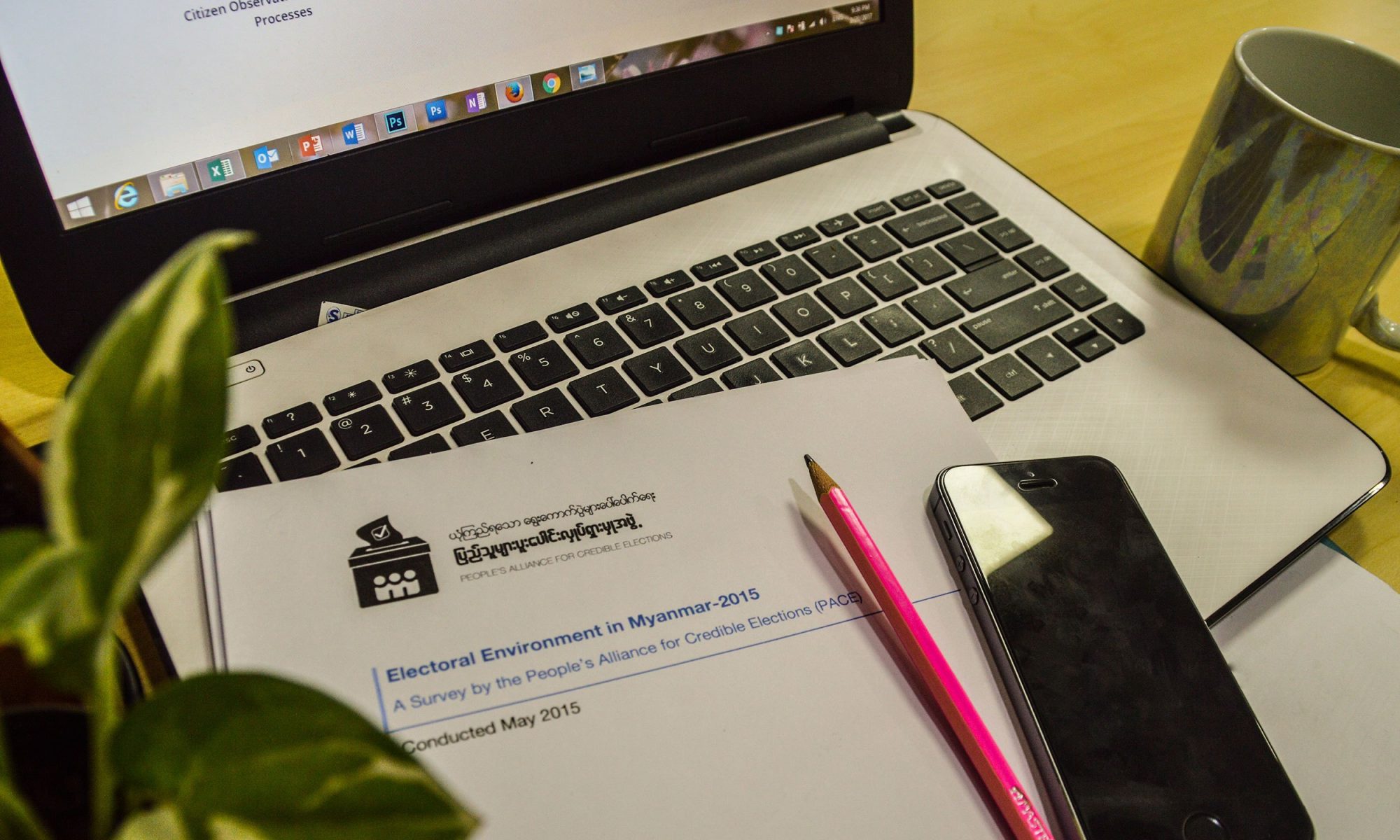Electoral Environment in Myanmar; A Survey by PACE (May, 2015)

Key Findings
Communal engagement
PACE was interested to know how often people have engaged with their communities, which is crucial and healthy for democratic society. The findings show that people are less associated with their communities. When people are asked if they have involved in any association within their communities, more than half of citizens exhibit low levels of
engagement.
Interest in politics
Interest in politics is always matter for Myanmar and generally, people of Myanmar are seen as politically motivated. PACE has asked if they are interested in politics, 43% said that they are interested.
Intention to vote
PACE has asked a standard question, which have been asked widely in Myanmar polls recently: if citizens have an intention to vote in upcoming general elections. The majority of the respondent (81%) said they have planned to vote.
Awareness of election observers
Non-partisan election observers are one of the most important factors to build public
confidence and contribute to the integrity of the elections. PACE have asked if they have heard that independent observer groups are observing elections, 46% said they have heard of them, and 27% said no. When it comes to the role of domestic and international observers in elections, people support domestic groups more than international groups. 53% of the respondents said domestic groups are helpful for transparency of the elections and only 45% said international groups are helpful.
Factors of democratic elections
To gauge the level of understanding on the factors contributing to democratic elections, PACE has asked how important are seven factors in elections, such as secrecy of ballot, neutrality of the election commission, no fraud, proper vote count, announcement of correct results, equal chance to campaign and no intimidation for the elections. 51% to 65% responded that those are important factors to assess the quality of the elections.
Opinions mattered to decide the quality of the elections
When it comes to decide whether the elections went well, PACE was interested to know how the perception of people has been shaped. PACE has asked “Whose opinion matters to decide if elections went well” out of eight categories. The first and second most important for them is “Myanmar government” followed by “Independent observers.” 18% and 15% said Myanmar government is what matters most and 15 % and 12 % said independent observers are what matters most.
Expectation of elections
PACE’s interviewers asked the respondents if Myanmar is ready for elections, and 63% said they agreed with the statement. When PACE asked the question “2015 elections will be free and fair,” only 64% agreed. When people are asked about negative scenarios like “it will be fine if there is no election in 2015,” only 38% agreed with this.
Views on Politicians
PACE asked citizens to what extent politicians are trustworthy. PACE has asked its respondents that if politicians care about ordinary peoples’ interests, 59% said they agreed that politicians cared about them. And when we asked differently, “politicians make promises at election time but do not fulfill them afterwards,” 45% agreed with this
statement.
In a transitional country like Myanmar, for the elections to reflect the will of the people and to promise democratic changes, people need to be well informed and motivated to engage in the electoral process. PACE hopes that these findings can at least partly contribute to the work of political parties, local NGOs, the Myanmar government, like UEC, and the international community to meet the local needs and complement the findings of others.
PACE also hopes that Myanmar CSOs carry out additional surveys and other research in the future to inform civic and voter education efforts.
Download Full Report! PACE 2015 Electoral Survey Report FINAL (ENG)

